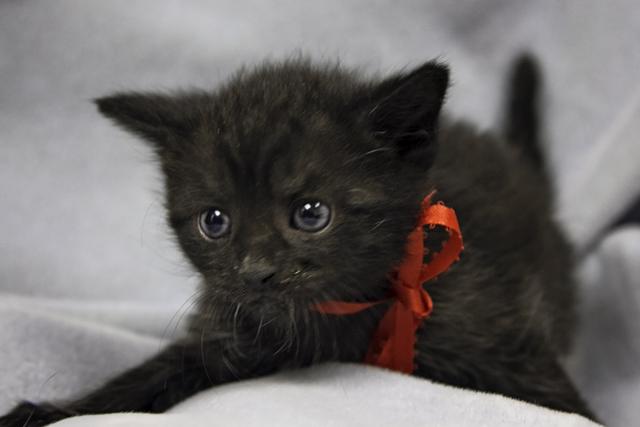How to Request
If you would like Animal Care & Control to test the kitten or cat you’re planning to adopt, tell the receptionist.
For kittens and cats being spayed/neutered prior to going home:
- The FeLV/FIV test will be done at the time of surgery. If the test is positive, you will be telephoned before you come to pick up the kitten or cat. If you decide NOT to take the kitten or cat after learning that the test was positive, you may get a refund OR apply the money to the adoption of another kitten or cat.
For cats that have already been spayed/neutered and are otherwise ready to go home, you may:
- Leave your cat here until the test has been performed.
- Take you cat home and make an appointment to bring him/her back for testing in a few days. If the test is positive, Animal Care & Control will phone you. If you decide NOT to take the kitten or cat after learning that the test was positive, you may return the kitten or cat and get a refund OR apply the money to the adoption of another kitten or cat.
If you decide to keep a kitten or cat that tested positive for Feline Leukemia Virus and/or Feline Immunodeficiency Virus, you should consult with your private veterinarian about the disease and how it may affect your animal. You, not Anne Arundel County Animal Care & Control, are responsible for the cost of caring for your pet.
Fees
The fee for the feline leukemia virus and feline immunodeficiency virus test costs $40.00.
Test Results
The following are possible interpretations of positive and negative test results. You should consult with your private veterinarian for specific advice concerning your pet.
The vast majority of negative tests are interpreted to mean that your cat/kitten does not have the virus that causes the diseases most veterinarians group as “FeLV related.” There is a small possibility that your new pet was exposed to the virus very recently and has such a small amount in her/his body that the test came out negative. To be very sure that a negative test is accurate, your veterinarian should retest your cat in 4-8 weeks.
A positive result means that your cat/kitten has the virus present in his/her blood. Many cats that are FeLV positive are able to fight it off and become FeLV negative in the future. If you decide to adopt a FeLV positive cat, you should have the cat retested by your veterinarian. The cat/kitten can become FeLV negative at any time, but most will successfully fight off the disease within 12 weeks. You should consider your cat positive and therefore contagious to other cats at this time.
This means that your cat/kitten has not been exposed to the virus that causes Feline Immunodeficiency Disease. A negative test is highly reliable; the rare exception is exposure that was so recent that your cat/kitten has not yet developed a positive reaction on the test. If you have your cat/kitten retested for FeLV, your veterinarian may suggest repeating the FIV test at the same time.
This result means that your cat/kitten has been exposed to the FIV virus. Many cats live essentially normal lives with FIV in their bodies. However, you should discuss the results with your veterinarian and learn how this will affect your cat. Kittens up to 12-weeks can test positive for FIV if their mothers were vaccinated against the virus. Older cats vaccinated against FIV often have positive FIV tests for a year or more after they were vaccinated.

